As a devoted fan of movies, especially those that celebrate the magic of musicals and dance, the announcement of a Dirty Dancing Remake should have filled me with excitement. I’ve even experienced the stage adaptation and thoroughly enjoyed its vibrant energy. Therefore, logic dictated that I should have embraced the reimagining of the iconic film. However, as many viewers discovered, the dirty dancing remake unfortunately missed the mark by a wide margin.
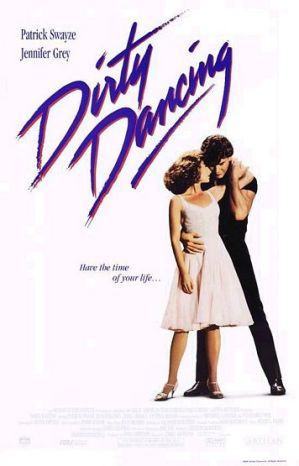 Dirty Dancing original movie poster
Dirty Dancing original movie poster
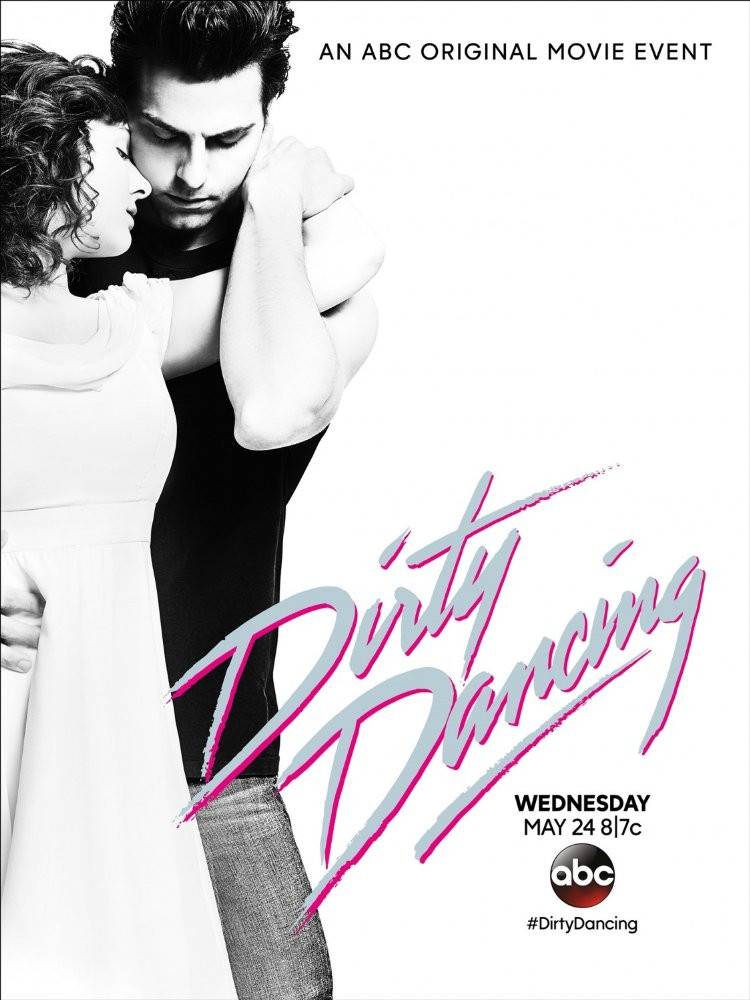 Abigail Breslin and Colt Prattes in the Dirty Dancing remake
Abigail Breslin and Colt Prattes in the Dirty Dancing remake
The question then arises: what went so drastically wrong? Why did this new version fall so short of the beloved original? It’s more than simply the challenge of replicating a classic; the issues run deeper. Be warned, spoilers for both the original and the remake are ahead as we dissect the disappointments of this dirty dancing remake.
Casting Concerns: Abigail Breslin’s Baby Just Couldn’t Dance
Let’s begin with casting, a critical element in any film, and particularly crucial when stepping into the shoes of iconic characters. While I appreciate Abigail Breslin’s talent, her portrayal of Baby Houseman simply didn’t resonate. In the original Dirty Dancing, Jennifer Grey brilliantly depicted Baby’s initial awkwardness on the dance floor. Her movements were endearingly clumsy, lacking rhythm and grace. However, under Johnny Castle’s tutelage, and through persistent practice, Baby transformed. She evolved into a fluid and captivating dancer, making her on-screen transformation believable and rewarding to watch.
Unfortunately, this crucial character arc was lost in translation with Abigail Breslin’s performance. Throughout the dirty dancing remake, I found myself waiting for that pivotal moment where Baby would find her groove, where her dancing would convincingly improve. Sadly, that moment never arrived. Her mambo performance at the Shelldrake felt more akin to a hesitant week one contestant on “Dancing with the Stars,” rather than a character experiencing a genuine dance awakening. The enthusiastic applause she received in the film, complete with multiple bows, felt unearned and jarringly out of sync with the performance we witnessed.
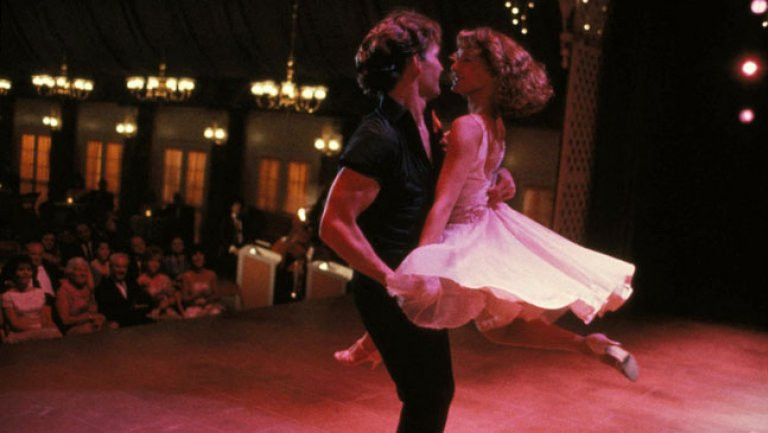 Jennifer Grey and Patrick Swayze in the iconic Dirty Dancing finale scene
Jennifer Grey and Patrick Swayze in the iconic Dirty Dancing finale scene
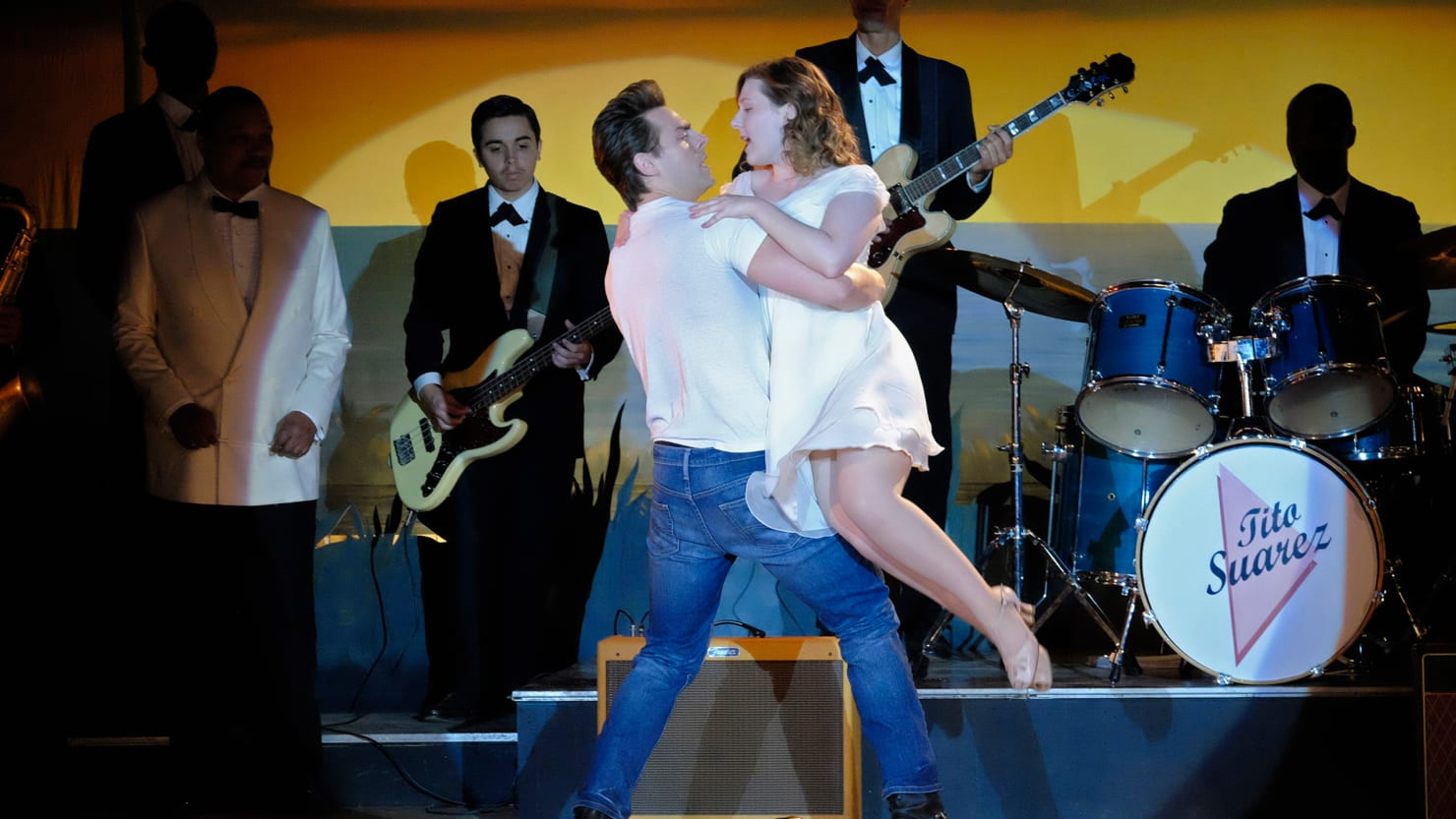 Ending scene from the Dirty Dancing remake
Ending scene from the Dirty Dancing remake
Plot Deviations: Johnny’s Character Lost His Edge
Moving beyond casting, the narrative choices in the dirty dancing remake also contributed to its downfall. One particularly jarring alteration was the decision to have Johnny Castle involved with Vivienne Pressman. Let me reiterate – Johnny was romantically entangled with Vivienne while simultaneously developing feelings for Baby. While this plot point was seemingly introduced to facilitate the watch storyline, it fundamentally undermined Johnny’s character.
This deviation felt inherently wrong and not simply due to prudishness. The issue arises when Penny urges Johnny to end things with Vivienne. His response? He assures Vivienne that he’ll return to her bed later that same night. This behavior clashes dramatically with the image of a man supposedly falling deeply in love with Baby. The night of heartbreak and supposed emotional liberation should not culminate in seeking solace in another woman’s arms. This plot twist tarnishes Johnny’s character, stripping away the “bad boy with a heart of gold” persona that was so central to his appeal in the original. Perhaps this is a matter of personal preference, but this change felt like a significant misstep in portraying Johnny’s character. Furthermore, the absence of his signature black pants and the questionable jeans, which felt anachronistic and lacked the original’s cool factor, were minor but noticeable disappointments.
Musical Missteps: Songs Stripped of Their Soul
Another significant misstep in the dirty dancing remake was the handling of the music. As a musical enthusiast, I initially appreciated the inclusion of Johnny singing. It held the promise of adding a new dimension to his character and the musicality of the film. However, the execution fell drastically short. The songs themselves were drastically altered, straying far from the beloved originals. The arrangements sounded amateurish, almost as if they were produced using a basic soundboard by someone lacking professional expertise.
Compounding this issue was the choreography. It appeared watered down, presumably to accommodate the singing, despite the fact that the performances weren’t even live. A prime example of this is the iconic “carrying a watermelon” scene. In the remake, Johnny is singing to Baby during this moment, but his movements are minimal, reduced to a casual stroll instead of the suggestive and passionate “dirty grinding” that made the original scene so memorable and impactful. The original scene conveyed raw chemistry and burgeoning attraction through dance; the remake version felt flat and lifeless. Furthermore, the misquoting of the famous line itself was an unnecessary and irritating detail for fans of the original.
Unnecessary Scenes: Vivienne’s “Fever” Performance
Speaking of musical numbers that missed the mark, Vivienne Pressman’s rendition of “Fever” was baffling. Much like Dr. Houseman’s reaction, it felt like a cue to simply leave the room. Vivienne, much like the remake’s Baby, demonstrated a distinct lack of dancing ability, mostly walking around and over Johnny in a manner that was neither seductive nor entertaining. The purpose of this scene remained unclear. It did little to advance the plot and, if anything, merely reinforced the already established fact that Vivienne was a “cougar.” The scene felt awkward, forced, and utterly superfluous. It seemed like a misguided attempt to give Katey Sagal a more prominent role, but if that was the intention, casting a different actress who could actually deliver a compelling performance would have been a more effective solution.
In contrast, Debra Messing’s singing scene was a highlight. It was genuinely enjoyable and effectively developed the relationship between the Housemans. It also served to propel Baby’s plot forward, as it directly precedes her running to Johnny, leading to one of her few genuinely well-acted scenes in the remake. Messing’s musical moment was not only well-executed but also narratively justified, proving that musical additions could work when integrated thoughtfully, unlike Sagal’s awkward and unnecessary burlesque-inspired performance.
 Nicole Scherzinger as Penny Rivera in the Dirty Dancing remake
Nicole Scherzinger as Penny Rivera in the Dirty Dancing remake
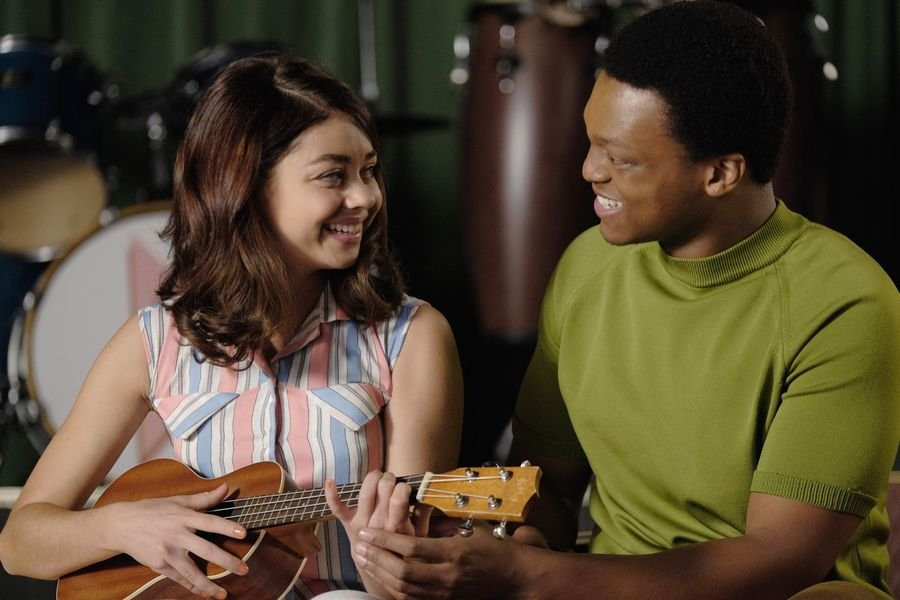 Sarah Hyland as Lisa Houseman in the Dirty Dancing remake
Sarah Hyland as Lisa Houseman in the Dirty Dancing remake
Disappointing Ending: Robbed of a Happily Ever After
Finally, the ending of the dirty dancing remake proved to be another major disappointment. The alteration of Baby becoming a writer was a positive change, emphasizing her agency and independent choices beyond the pre-determined path of becoming a doctor. It suggested a fulfilling life where she could express her creativity. However, the decision to reunite Baby and Johnny without actually bringing them back together romantically was perplexing and frustrating.
The film depicts Baby as married, seemingly flaunting her new husband in front of Johnny. Conversely, Johnny’s romantic life is left ambiguous, with no indication of a partner. This ending portrays Baby as having achieved a perfect life and moved on, while Johnny is left gazing at her with longing, as if she’s an unattainable dream. While Johnny’s parting line, “keep dancing,” is a sweet sentiment, it doesn’t provide the emotional resolution that audiences craved. Instead of a hopeful reunion, we are left with a sense of melancholy and unfulfilled potential. The original film’s ending implied a happily ever after for Baby and Johnny, a hope that the remake cruelly denies. The entire tone, including the cheesy sing-a-long at the beginning, felt more akin to a Lifetime movie than a worthy reimagining of a beloved classic. Why couldn’t we have been given a Lifetime movie ending, at least culminating in a dance together in the theater?
Remake Trend and Casting Issues: Focus on Talent, Not Names
The failure of the dirty dancing remake is not an isolated incident. Attempts to remake other musical classics like Grease (a disaster in its own right), Hairspray (arguably less successful than the original film), and The Sound of Music (despite Carrie Underwood’s efforts) highlight a recurring issue. Hollywood’s approach to remakes often prioritizes star power over genuine talent. Casting directors seem more focused on securing recognizable names than finding performers who can truly embody the roles and possess the necessary acting, singing, and dancing abilities.
The lesson to be learned from these repeated missteps is clear: casting should prioritize talent above all else. The ideal performers for musical remakes are those who can seamlessly act, sing, and dance – ideally all at the same time. If this means casting relatively unknown actors who possess these triple-threat skills, then so be it. Audiences are drawn to compelling stories and captivating performances, regardless of the actors’ fame. However, if studios continue to prioritize celebrity over substance, viewers may eventually lose interest in these nostalgic reimaginings.
Despite its numerous shortcomings, the dirty dancing remake wasn’t entirely devoid of merit. Nicole Scherzinger delivered an outstanding performance as Penny, embodying the character’s attitude, dance prowess, singing ability, and overall acting. The expansion of the Houseman family’s storyline, depicting adult characters grappling with relatable adult problems beyond infidelity, was a welcome addition. Sarah Hyland’s character development, evolving Lisa Houseman beyond a superficial stereotype and culminating in a heartwarming scene with her son, was another positive aspect. While her role occasionally leaned into cheesy territory, it was a forgivable flaw.
Ultimately, while the dirty dancing remake offered a few glimmers of hope, it ultimately failed to capture the magic and heart of the original. It serves as a cautionary tale about the pitfalls of remaking beloved classics and the importance of prioritizing substance and talent over superficial star power.
About the Author
Sarah Fischer is a background investigator and a romance novelist. She lives in Maryland with her husband and two cats. You can usually find her at the movies or road tripping to New York for a new play. Her books, First Semester and Craving Bad: A Bad Boys and Wicked Girls Anthology, are available on Amazon.

